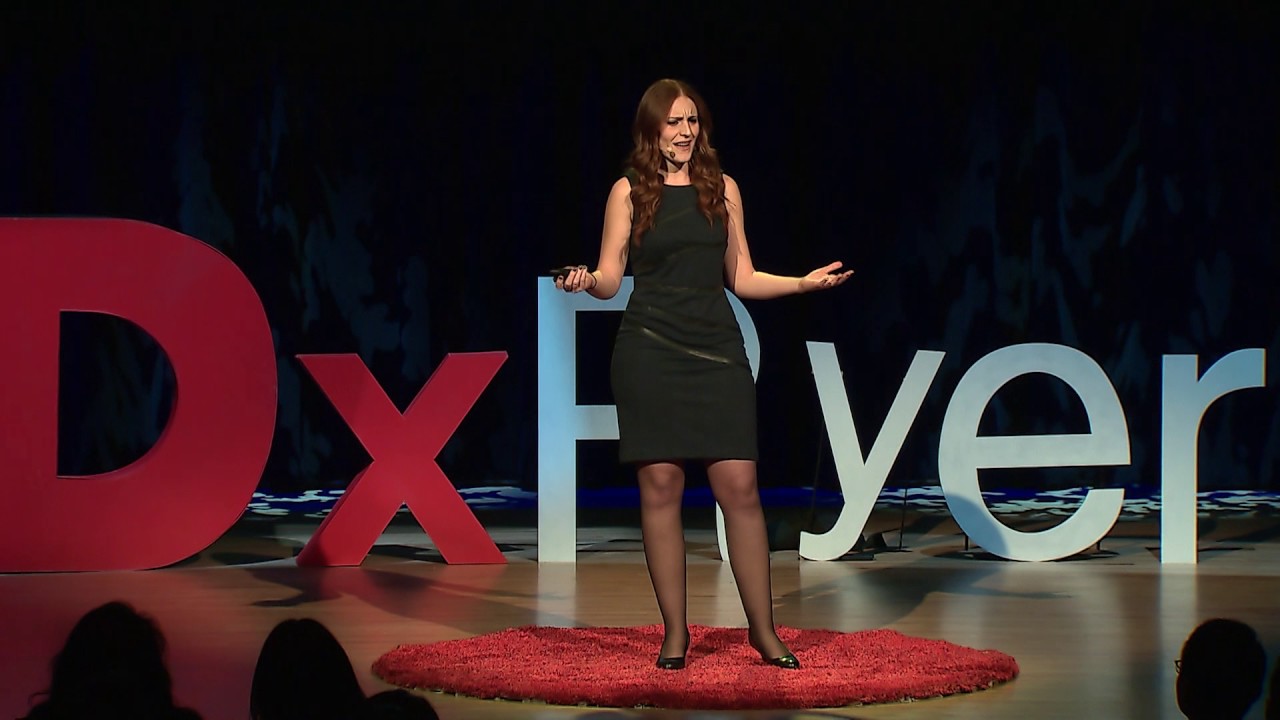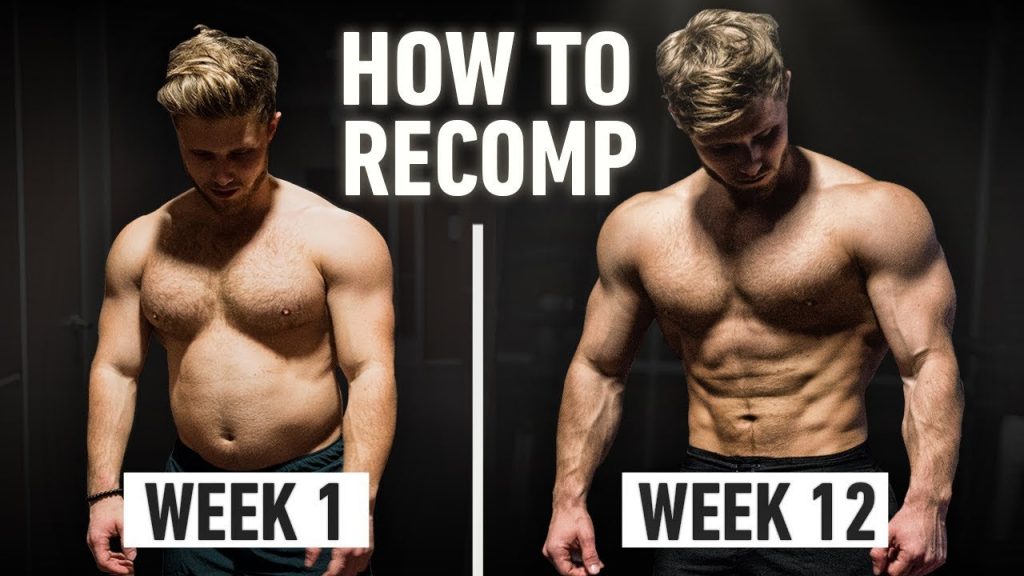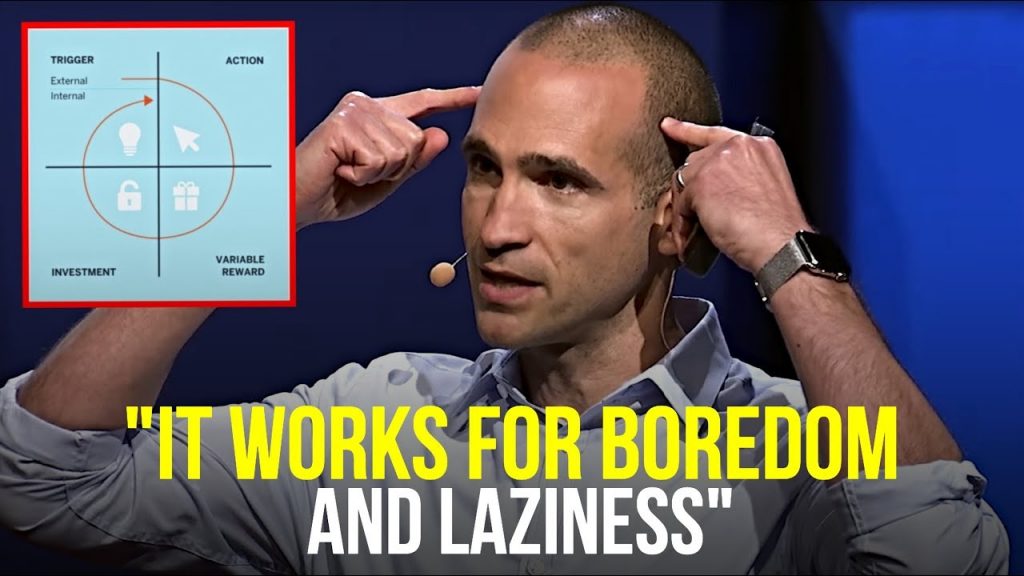Is Social Media Hurting Your Mental Health? | Bailey Parnell | TEDxRyersonU

Scrolling through our social media feeds feels like a harmless part of our daily lives.
But is it actually as harmless at seems? According to social media expert Bailey Parnell, our growing and unchecked obsession with social media has unintended long term consequences on our mental health. As social media continues to become part of the fabric of modern life – the “digital layer” – abstinence is becoming less of an option. Bailey think it’s high time we learned to practice safe social before it’s too late. What are the common triggers? How are they affecting you over time? How can you create a more positive experience online? Bailey covers this and more in “Is Social Media Hurting Your Mental Health?”
Bailey Parnell was recently named one of Canada’s Top 100 Most Powerful Women. She is an award-winning digital marketer, public speaker and businesswoman with a talent for helping people tell better stories. Her work and expertise have been featured on CBC, CTV & in other local Toronto media. Bailey recently founded SkillsCamp, a soft skills training company where they help people develop the essential skills needed for professional success. She also currently works in digital marketing at Ryerson University.
Bailey is a frequent public speaker having spoken to more than 10 thousand people. She primarily speaks about social media, personal branding, and media and mental health. She guest lectured her first MBA class at 21-years-old and has been the youngest speaker as multiple academic conferences. She is currently pursuing her Masters in Communication and Culture with a research focus on social media and mental health, and holds an honours BA from the RTA School of Media at Ryerson.
What are some of the negative effects of social media on one’s mental health?
Social Media has revolutionized the way people communicate and interact with each other. However, it has also raised concerns about its impact on mental health. Bailey Parnell’s TEDxRyersonU talk delved into this topic, analyzing how social media can have both positive and negative effects on one’s mental health.
Parnell begins by acknowledging the upside of social media, highlighting how it has facilitated connections and conversations between people from different parts of the world. With the help of social media platforms, individuals can form and join communities that share similar interests and beliefs. This allows people to feel a sense of belonging and togetherness, which have been shown to have a positive impact on one’s mental health.
However, Parnell also highlights the negative side of social media. She stresses that social media can often cause stress and anxiety, leading to a deterioration of one’s mental health. She curates her argument by citing several studies that illustrate how the overwhelming information and social pressure on social media are immensely damaging.
Parnell details how social media can lead to addiction, with people continually engaging with the platforms to keep up with the latest trends and news. Furthermore, the consumption of an idealized and filtered life can cause dissatisfaction with one’s actual life, leading to depression and anxiety. The pressure on individuals to present an idealized version of their life on social media can also lead to a lack of authenticity and honesty, causing disconnect with people and leading to depression.
To counteract the potentially harmful effects of social media, Parnell offers some advice. One of the key strategies is to limit time spent on social media platforms. She recommends having set times each day when one can access social media, a strategy that is commonly known as “digital fasting.” This allows individuals to decompress from social pressure and concentrate on what is most essential to them.
Parnell also emphasizes the importance of having a balanced perspective on social media. It is essential to recognize that social media is a tool, not an end in itself. Furthermore, it is crucial to keep in mind that social media can often be a highlight reel and not an accurate representation of an individual’s life. Consequently, people should view social media with skepticism and not take it too seriously, lest they risk damaging their mental well-being.
In conclusion, as social media becomes an increasingly ubiquitous part of our lives, it is important to consider its effects on our mental health. Bailey Parnell’s TEDxRyersonU talk offers valuable insights into the potential benefits and drawbacks of social media. While social media can indeed be beneficial in creating connections and forging relationships, it is vital to be aware of its harmful effects on our mental health so that individuals can take steps to limit its usage to make positive changes in their own lives.








New Bill Allows Oregon Students To Take ‘Mental Health Days’ | NBC Nightly News
15 Reasons Why Highly Intelligent People Struggle With Love
Low-Carb/Keto Friendly Snacks
Healthy Indian Style Cooking